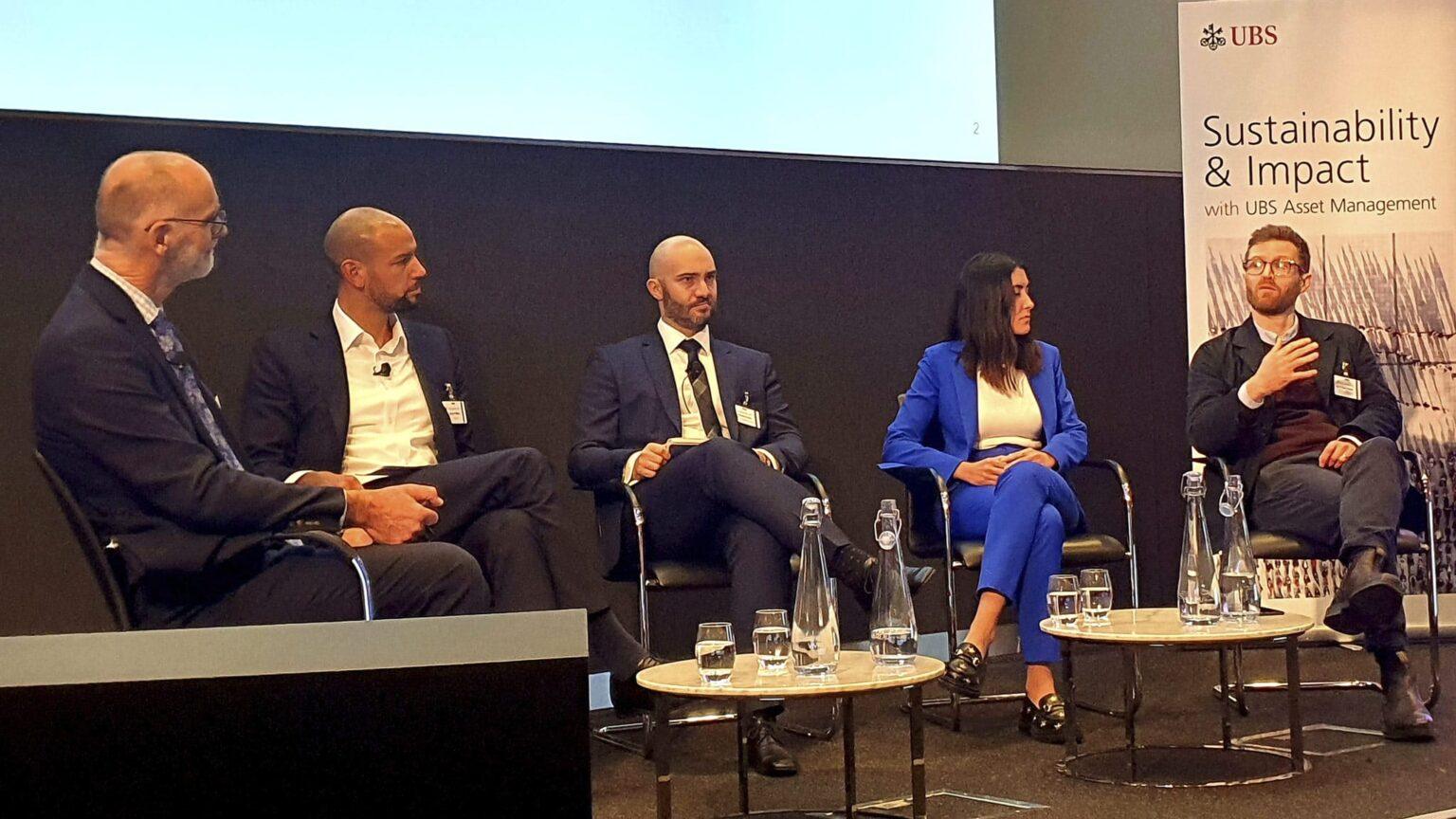
Thought
GRESB Infrastructure Results Event Panel Discussion Summary
The GRESB Infrastructure Results Event for 2023, co-hosted by EVORA Global and held at the UBS offices in London, provided a platform for in-depth discussions on the current state and future trajectory of ESG reporting within the infrastructure investment landscape.
Cathy Granneman from GRESB presented key insights into the 2023 GRESB Infrastructure results, setting the stage for a thought-provoking panel discussion.
The panel, moderated by Matthew Brundle of EVORA, brought together industry experts including Branko Kukic (Columbia Threadneedle), Ruairi Revell (abrdn), Natalie Sinha (UBS), and David Thomas (GRESB). The conversation revolved around three pivotal themes: the future direction and challenges of ESG reporting for infrastructure investors, the challenges and opportunities for infrastructure assets in meeting net-zero commitments, and the role of infrastructure investments in delivering social value.
This summary looks at the key takeaways and insights generated during the panel discussion, shedding light on the nuanced perspectives shared by the panellists.

Key Takeaways:
- Complexity of Sustainability Reporting: The speakers acknowledged the complexity of sustainability reporting in the infrastructure investment sector, with a growing ‘alphabet soup’ of acronyms adding to complexity. They emphasized the challenge of navigating through the diverse requirements and staying informed about the latest developments. The proliferation of ESG standards and regulations poses challenges for consistency, comparability, and decision-usefulness. The speakers questioned how effectively the current disclosure activities contribute to long-term value and sustainability outcomes.
- Data Gathering Progress: Progress has been made in gathering baseline data, partly attributed to regulatory developments and disclosure regulations, such as SFDR. The speakers noted a significant improvement in carbon literacy among portfolio companies compared to previous years. However, the challenge remains in cutting through the complexity and determining how to streamline reporting and reduce the reporting burden.
- Importance of Data Utilisation: While data gathering is crucial, the panel stressed the need to avoid the trap of keeping the data in a black box. Once data is collected, the focus should shift to seeking to find ways to use the data in a useful way for portfolio companies. This could involve seeking ways to compare data against benchmarks and leveraging it to set targets and reduction metrics.
- Challenges in Meeting Net Zero: The discussion touched upon challenges associated with meeting net zero goals, emphasising the urgency and significant investment required in new infrastructure. The speakers noted the complexities in reaching net zero for existing portfolios, and wider challenges arising from technological uncertainties and policy changes.
- Double Materiality and Regulatory Changes: CSRD’s introduction of double materiality and ongoing consultations on SFDR were highlighted as significant regulatory changes. Staying on top of the regulations remains an ongoing challenge.
- Importance of Social Impact: The discussion turned to the social aspect of ESG, emphasising the essential services provided by infrastructure deliver inherent social value. The speakers recognized challenges in measuring social impact, and questioned whether extra reporting was necessary or useful given that infrastructure is so critical to society and the economy. Social value is often intangible and more measurement might not lead to more social value.
Insights:
- Data Quality Improvement: Initiatives are underway to improve the quality of ESG data, with a focus on aligning with standards, protocols, and addressing data coverage indicators.
- Net Zero Working Groups: Collaboration through industry-specific working groups, such as the Net Zero Working Group, is seen as essential for defining and evolving standards in alignment with industry needs. The IIGCC provides useful guidance on setting net zero targets for existing infrastructure portfolios.
- Investment Opportunities in Decarbonisation: Despite challenges, there are enormous investment opportunities in climate solutions and decarbonisation, especially in the energy transition sector. The speakers stressed the need for informed decision-making to maximize long-term value.
To connect with EVORA’s Infrastructure experts, contact us today.













